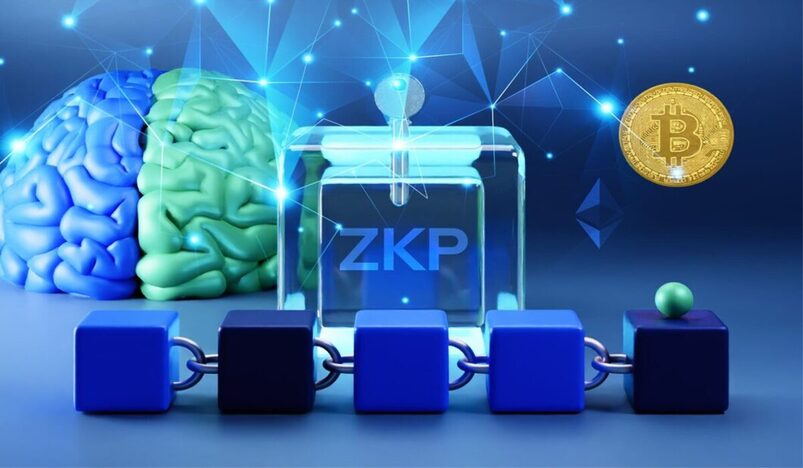
Zero-Knowledge Proof
With businesses handling vast amounts of sensitive data, ensuring privacy in digital transactions has become a top priority. Organizations need methods that allow verification without exposing confidential information. Traditional security measures often require sharing partial or complete datasets for validation, which increases the risk of data exposure. To address this challenge, advanced techniques are being adopted to balance privacy and verification.
One such approach is the zero-knowledge proof in blockchain systems. It allows one side to establish the authenticity of an argument without disclosing any underlying information. This method strengthens privacy, reduces data leakage risks, and enhances security in various business processes. From identity verification to confidential transactions, the applications of zero-knowledge proofs are plenty, and they are shaping the future of secure digital interactions.
What is a Zero-Knowledge Proof?
A proof with no knowledge is a process in which one person (the prover) proves to another (the verifier) that an argument is true without disclosing any further information. This is achieved through complex mathematical proofs that validate the claim without revealing the underlying data.
Zero-knowledge proofs operate on three fundamental properties:
This technique is being increasingly integrated into blockchain architectures to enhance privacy and security without compromising trust.
How Zero-Knowledge Proofs Work
Zero-knowledge proofs rely on sophisticated mathematical computations. The process typically involves:
One of the most commonly used zero-knowledge proof methods is zk-SNARKs (Zero-Knowledge Succinct Non-Interactive Argument of Knowledge). This approach allows for efficient proof generation and verification while maintaining strong privacy assurances.
Why Use Zero-Knowledge Proof in Blockchain?
The use of zero-knowledge proofs in blockchain systems enhances privacy and security by minimizing data exposure. Some key advantages include:
These benefits make zero-knowledge proofs a valuable tool for industries requiring privacy-focused digital transactions.
Applications of Zero-Knowledge Proofs in Blockchain
The applications of zero-knowledge proofs are as follows:
Identity management systems often require users to share excessive personal information for authentication. With zero-knowledge proofs, individuals can verify their identity without exposing sensitive details such as government-issued ID numbers or biometric data. This enhances privacy while maintaining regulatory compliance.
Elections and corporate governance rely on secure voting mechanisms. Zero-knowledge proofs allow voters to prove their eligibility and cast ballots without revealing their choices. This ensures election integrity while protecting voter anonymity.
Financial transactions often require verification, but exposing transaction details can lead to privacy concerns. By utilizing zero-knowledge proofs, businesses can validate payments, settlements, and asset transfers while keeping transaction amounts and participants confidential.
Supply chain networks involve multiple entities that need to verify product authenticity and compliance. Zero-knowledge proofs enable manufacturers, suppliers, and retailers to confirm the legitimacy of goods without disclosing proprietary business information.
Organizations require secure access control mechanisms to protect sensitive information. Zero-knowledge proofs can be used to verify user credentials without storing or transmitting passwords, reducing the risk of unauthorized access.
The Evolution of Privacy-First Technologies in Blockchain
As organizations place greater emphasis on data security, zero-knowledge proof applications are proving to be a crucial tool for safeguarding privacy while maintaining verifiable integrity. These techniques enable trustless verification, ensuring that sensitive data remains confidential even as it is authenticated. From identity verification and financial transactions to secure communications and enterprise solutions, zero-knowledge proofs enhance security without compromising efficiency.
As advancements in research continue, these solutions are set to become a fundamental part of secure digital ecosystems across industries. Implementing such privacy-focused innovations requires expertise and the right technology partners. Companies like rootVX help enterprises integrate advanced security solutions seamlessly, ensuring that privacy and efficiency go hand in hand.
.jpg)
Qatar Secures Place Among the World's Top 10 Wealthiest Nations
.jpg)
Hamad International Airport Witnesses Record Increase in Passenger Traffic

Saudi Arabia: Any visa holder can now perform Umrah

What are Qatar's Labour Laws on Annual Leave?
Leave a comment